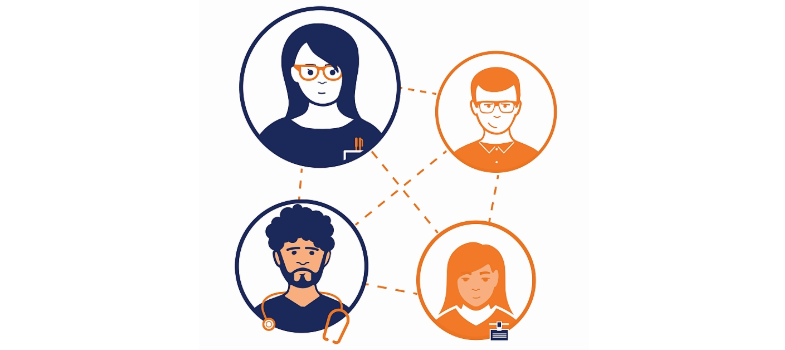Responding to presentations of MND
This week's learning material.
This week you will explore how different MDT models provide effective multidisciplinary care to patients.
Here is a video explaining this week's focus.
Whilst you work through the tasks in week 5 consider these focus questions:
- How might you approach individual cases of MND?
- What are the differences and similarities within the various models in practice?
- Are there lessons to be learned and taken back to your team?
Recommended reading
Good coordination is essential for effective care. Effective coordination can be carried out in different ways, with models that are more or less formal.
One formal structured model of care for MND may be found within MND Care Centres, these are multidisciplinary, specialist MND clinics based in hospitals in receipt of funding from the MND Association. An alternative model, MND Association Care Networks, do not have a fixed location and generally cover larger, rural areas using clinics and outpatient services across the area. Much of the care is offered in the community.
There are also specialist multidisciplinary MND clinics not funded by the Association, as well as community based teams. Community teams vary enormously involving differing levels of input from hospitals, hospices, and community teams: some function without a dedicated co-ordinator role.
All of these teams work to provide the best care for people living with MND. Their approaches to care are influenced by their make-up and all are valid.
Here is your recommended reading for the week:
Final report to the Motor Neurone Disease Association 08 March 2016
